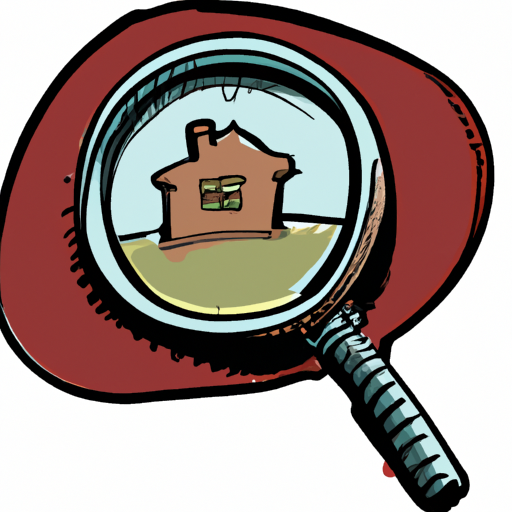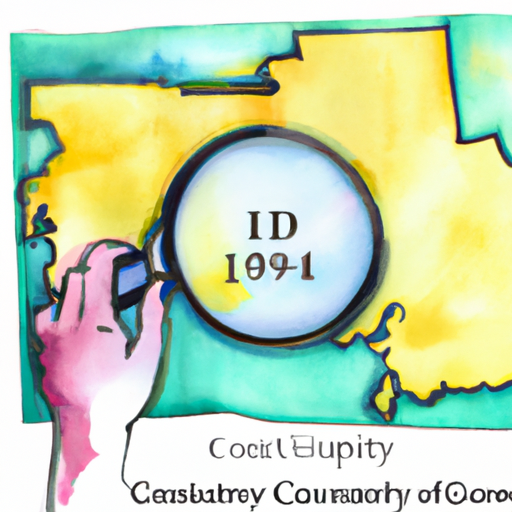This text emphasizes the importance of knowing real estate ownership for a variety of reasons, including buying or renting real estate. It provides step-by-step instructions on how to research public records to find information about a property. It also discusses online resources for accessing property information and the process of obtaining property records from local government agencies. It also mentions two options for investigating property ownership when public records and online resources are insufficient.
When it comes to real estate, knowing who owns the property is important information. Whether you’re looking to buy real estate, conduct an inspection, or resolve a dispute, understanding real estate ownership can make a big difference in your decisions and actions. In this article, we’ll discuss different methods and resources to help you find out who owns a property. From researching state archives to using online resources, contacting your local government for help, and even hiring a professional, we’ll provide you with a comprehensive guide to uncovering the details of real estate ownership. So, if you’ve ever wondered how to find out who owns a property, keep reading to learn about the different methods available to you.
- 1. Introduction: Understanding the importance of knowing ownership of property
- 2. State Archives Research: A Step-by-Step Guide to Discovering Property Information
- 3. Using online resources: Exploring websites and databases for property information
- 4. Applying for help to local self-government bodies: navigating the process of obtaining ownership documents
- 5. Hiring Professional Services: Exploring Options for Hiring Title Finders or Real Estate Agents to Investigate Title
1. Introduction: Understanding the importance of knowing ownership of property

Knowing who owns the property is important for a variety of reasons. Whether you are looking to buy a home, rent a property, or do business with a particular property owner, this information is essential. Understanding the importance of knowing your property rights will help you make informed decisions and avoid potential fraud or legal complications.
First, when it comes to buying real estate, knowing the owner is vital. This allows you to check the legitimacy of the seller and avoid fraudulent transactions. By doing a thorough title research on the property, you can ensure that the person claiming title to the property is the rightful owner and has the legal authority to sell it. This knowledge will protect you from falling victim to real estate scams and losing your hard earned money.
Similarly, if you plan to rent a property, identification of the owner is no less important. This gives you a sense of security and ensures that you are dealing with a reputable landlord. By knowing who owns the property, you can verify their authenticity and confirm that they are entitled
2. State Archives Research: A Step-by-Step Guide to Discovering Property Information

Researching State Archives: A Step-by-Step Guide to Discovering Property Information
If you’re interested in finding out who owns a particular piece of property, one of the most reliable methods is to research public records. These records are maintained by various government agencies and provide valuable information about the property. Here’s a step-by-step guide to help you navigate the process:
Step 1: Determine the county or local jurisdiction
Start by identifying the county or local jurisdiction where the property is located. Property records are usually kept at the county level, so you need to know the specific county to access the relevant records.
Step 2. Visit the district office or office
Once you’ve identified your county, visit the county recorder’s office or assessor’s office. These offices are responsible for maintaining property records, including property information. You can usually find their contact information online or in your local directory.
Step 3: Get the address of the property or lot
3. Using online resources: Exploring websites and databases for property information

In today’s digital age, finding information about real estate ownership has become much more convenient thanks to the abundance of online resources. A variety of websites and databases offer detailed property information, making the process of finding out who owns a property relatively easy.
One of the primary online resources for property information is the County Attorney’s Office website. Most counties have a website where they provide access to property records, including owner names, property tax history, and other relevant information. These websites often have a user-friendly interface that allows users to search for property information by entering the property address or lot number.
Another useful online resource is the site of the local registrar’s office. The recorder’s office maintains public records related to real estate transactions, including deeds, mortgages, and liens. By visiting their websites, users can search for specific properties and obtain ownership information from those records. It’s worth noting that some registrars charge a fee for access to certain records, but many grant title to the property.
4. Applying for help to local self-government bodies: navigating the process of obtaining ownership documents

Obtaining title deeds can sometimes be a difficult process, especially if you are unfamiliar with local rules and procedures. In such cases, seeking help from local authorities can be extremely helpful. Local government agencies, such as the county clerk’s office or assessor’s office, often maintain property records and can help you access this information.
First, identify the specific government agency responsible for keeping property records in your area. This can usually be done with a quick internet search or by contacting your local city or town hall. Once you’ve identified the appropriate office, gather all the necessary information related to the property in question, such as the address or Property Identification Number (PID).
Next, visit the office in person or contact them by phone or email to learn about the process of obtaining title deeds. Some offices may have online databases where you can search for this information, while others may require you to submit a formal request or fill out a special
5. Hiring Professional Services: Exploring Options for Hiring Title Finders or Real Estate Agents to Investigate Title

If you can’t find a property owner through state records or online resources, hiring a professional may be your best bet. Two common options for investigating property ownership are hiring title searchers or real estate agents.
Title searchers are professionals who specialize in researching and studying state archives to determine the ownership history of real estate. They have access to databases that contain detailed information on property transfers, liens, mortgages and other relevant documents. By conducting a thorough title search, they can provide you with accurate and up-to-date information about the current owner of the property.
Real estate agents, on the other hand, are licensed professionals who have extensive knowledge of the local real estate market. Although their primary role is to assist buyers and sellers in real estate transactions, many real estate agents also have access to property information. They can use their connections and resources to help you find out who owns the property.
When considering whether to hire a title finder or real estate agent, this is it
In summary, determining ownership of real estate is a crucial step in many situations, whether you are buying a new home, dealing with property disputes, or simply wondering who owns a particular property. This article provides a comprehensive guide on how to find out who owns a property. From researching government archives and using online resources to seeking help from local authorities and hiring professional services, there are many avenues to explore. By following the step-by-step instructions and using the resources mentioned in this article, individuals can access accurate and up-to-date property information. Using these methods will allow people to make informed decisions and manage their real estate transactions or concerns with confidence.
 Purex find
Purex find